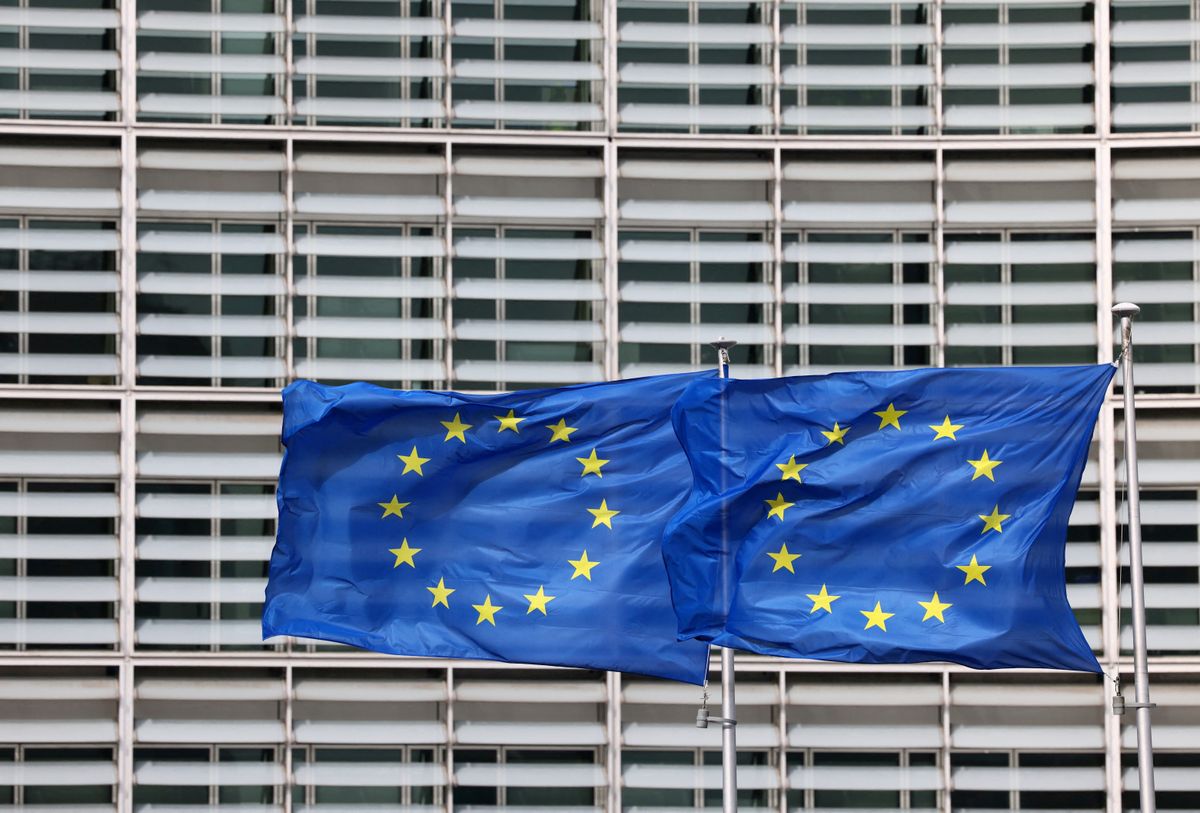The EU Digital Services Act comes into effect for tech giants
The European Union (EU) has been taking center stage in the world of tech regulations.

A few minutes every morning is all you need.
Stay up to date on the world's Headlines and Human Stories. It's fun, it's factual, it's fluff-free.
The backstory: The European Union (EU) has been taking center stage in the world of tech regulations. For example, it's rolling out acts like the Digital Markets Act and AI Act to set global benchmarks. One of its main moves is the Digital Services Act (DSA), which is meant to make the online space safer and regulate harmful stuff – whether it's illegal content like defamation or hate speech, or tactics that violate user privacy rights. The act is all about protecting the fundamental rights of Europeans while still protecting things like free speech.
More recently: The European Commission has been putting the biggest platforms through some tests, including for now 19 that have more than 45 million users in the EU. It’s basically checking how well these platforms handle situations like dealing with fake news. Names like Facebook, X (formerly Twitter) and TikTok were going through these evaluations. But, according to the Commission, these platforms still have some work to do to meet the DSA's standards.
Tech giants like Amazon and Zalando are concerned about the whole DSA setup. In June, fashion retailer Zalando sued the European Commission and argued that its third-party sellers don't reach that 45 million user threshold. Amazon took its worries to the European General Court (based in Luxembourg) in July, arguing that other big retail players aren't facing the same scrutiny and it was being unfairly singled out.
The development: The EU’s DSA officially kicked in last Friday, meaning big players like Meta's Facebook and Instagram, Apple's App Store and a handful of Google services are in the spotlight. They're under a bunch of new obligations in the EU. For one, they need to crack down on spreading harmful content. And, they've got to rein in certain methods they use to target users. They also need to share some of their data with regulators and researchers.
Around mid-February 2024, it won’t just be these 19 very large platforms facing the new regulations. The DSA will widen its scope to include more platforms regardless of the amount of users they have. And any platforms not following the rules could end up with fines of up to 6% of their global earnings. Repeat offenders could even face bans in Europe.
Key comments:
“For very large online platforms, the societal stakes are higher, and the rules include additional measures to assess and mitigate societal risks that are linked to their advertising systems, for example in catalysing disinformation,” said an EU Commission spokesperson.
“When it comes to online crime, there can be no half-measures. Very large online platforms need to put the necessary internal controls and resources in place to be ready for the new European rules,” said Thierry Breton, the commissioner responsible for enforcement of the new Digital Services Act
“The Digital Services Act is groundbreaking legislation that will set a worldwide standard for content regulation and the protection of users from online harms,” said Peter Church, a technology lawyer at Linklaters.




Comments ()